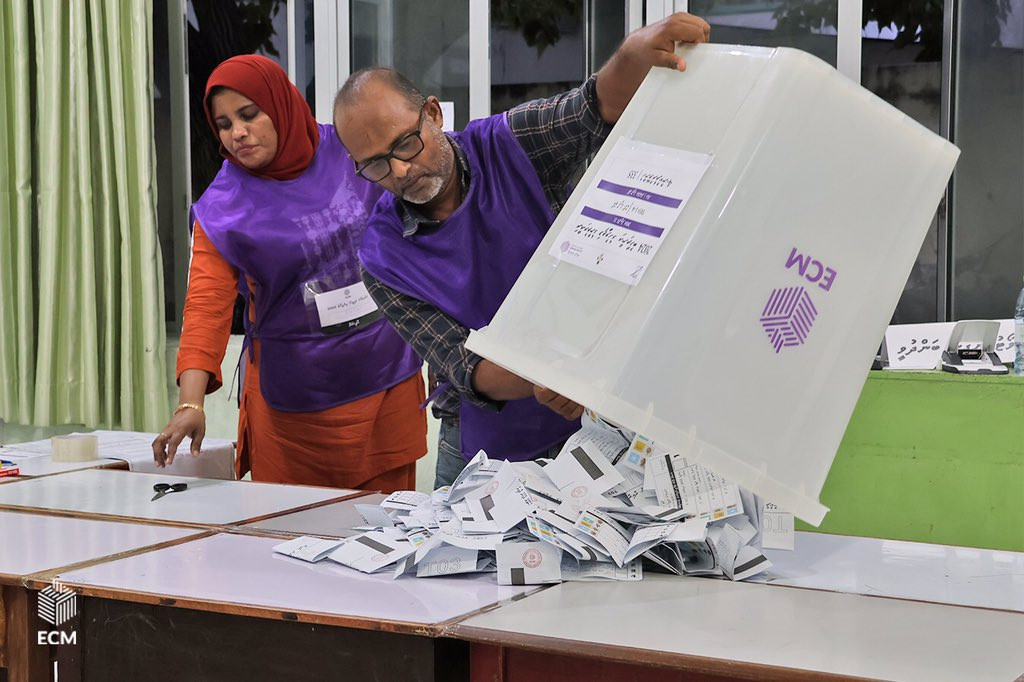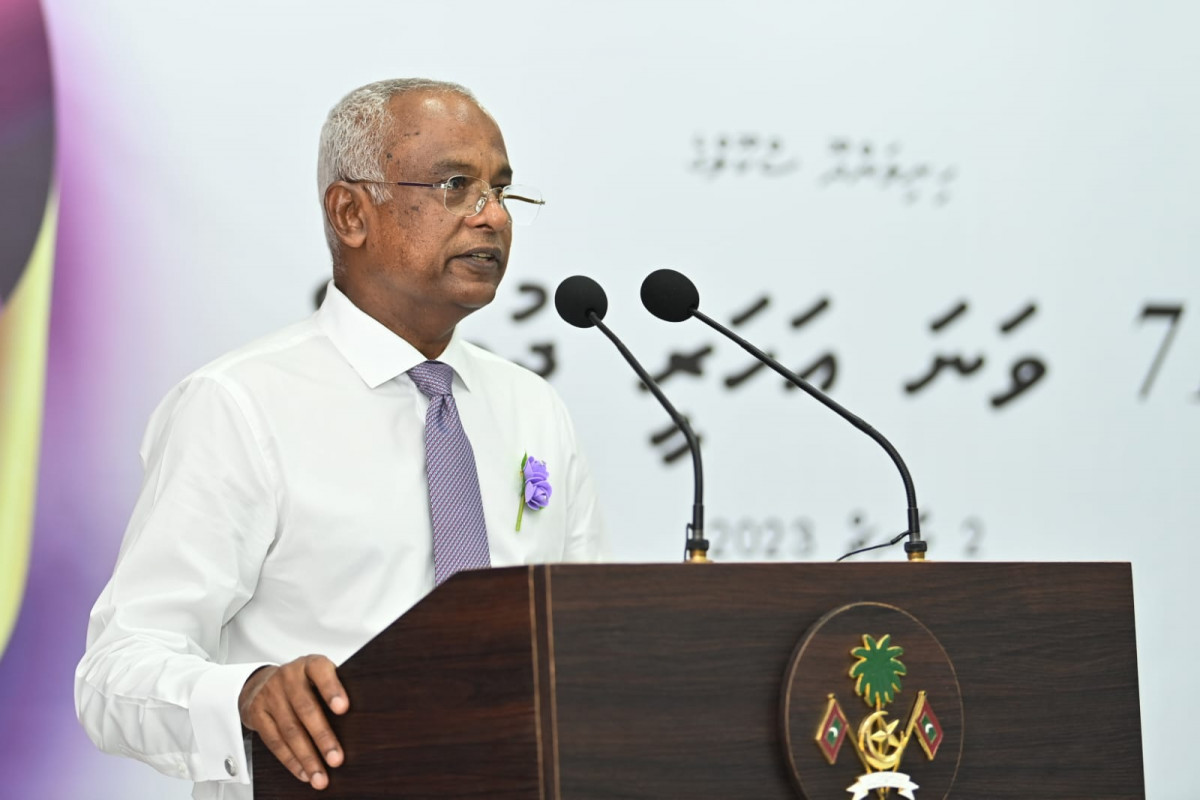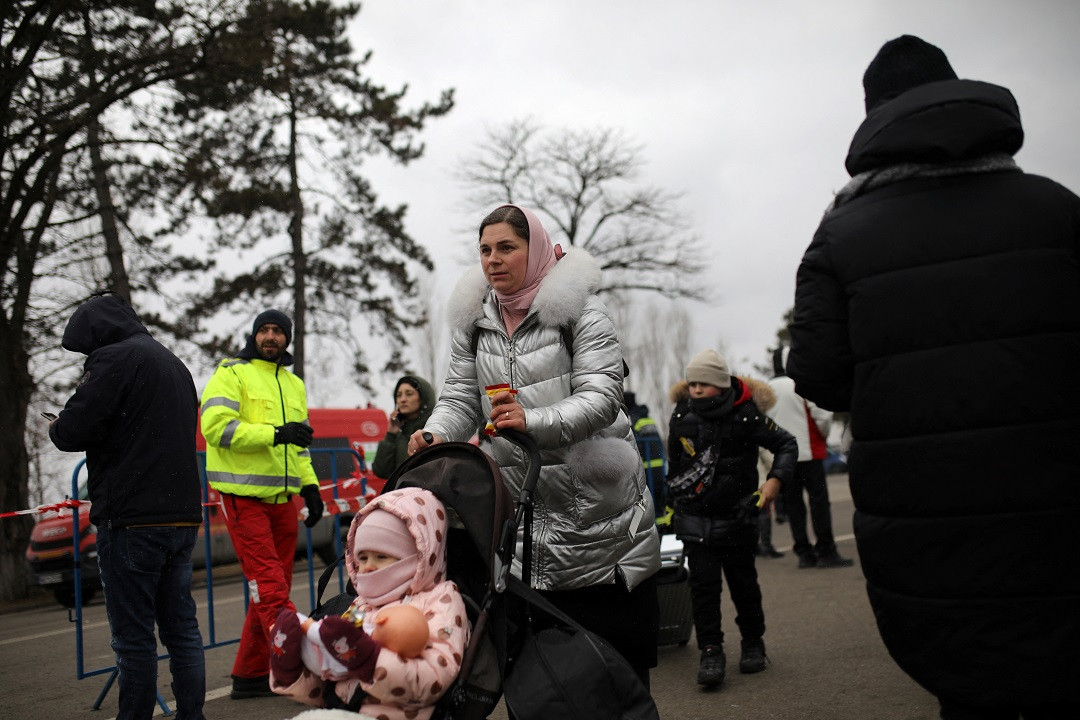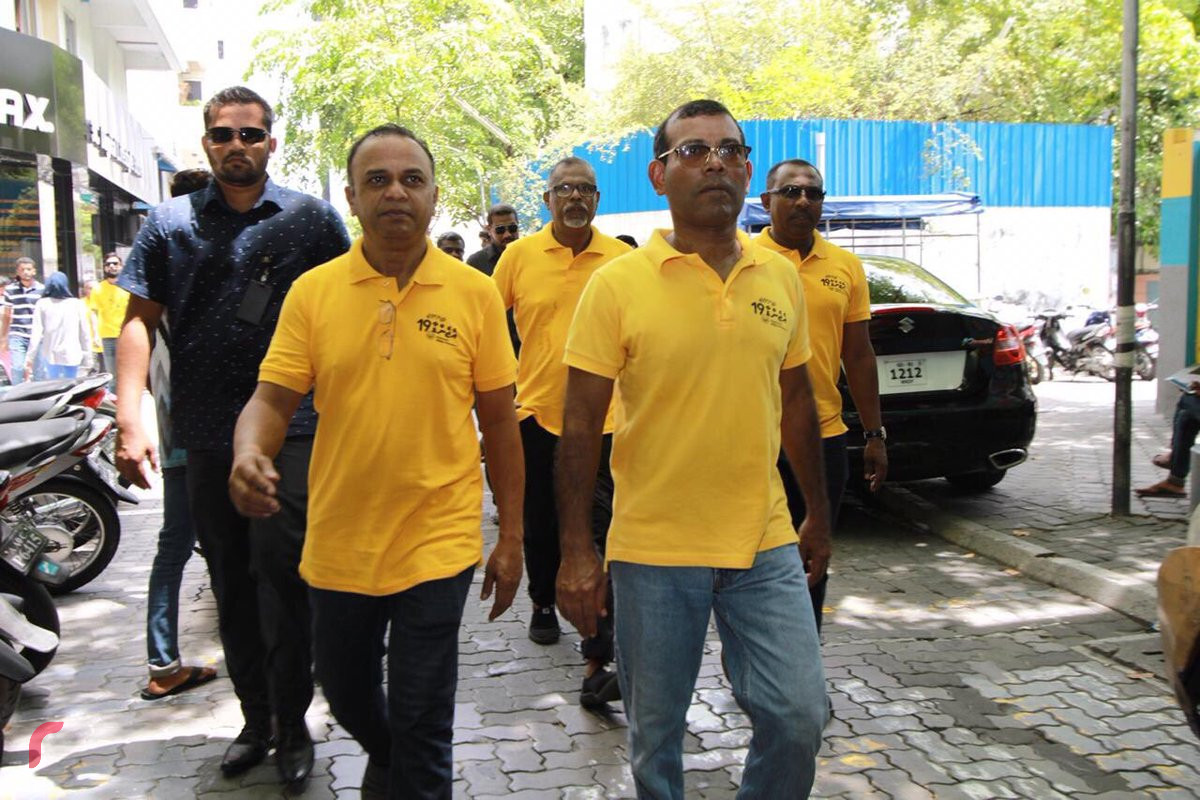Lack of successful probes in vote buying cases, challenging: TM
TM congratulated the winning candidates


Queue closes, vote counting during the parliamentary elections of 2024
Transparency Maldives has expressed concern over the lack of monitoring of vote buying and weakness in speedy and successful investigations and enforcement in such cases.
TM publicized a statement on the closing of Sunday’s polls for the parliamentary election for the 20th tenure of the People’s Majlis.
In its statement, TM highlighted that all stakeholders interviewed for their pre-election assessment raised concerns over vote buying taking place in the current election cycle.
They also received information of widespread allegations of vote-buying during the campaign period and on the election day as well.
Highlighting that the lack of monitoring of vote buying remains concerning, TM revealed that the weak attempts to conduct speedy and successful investigations and to implement the enforcement of actions, remain key challenges.
Expressing appreciation and gratitude to the nearly 270 observers and volunteers in the observer network deployed across the Maldives as well as abroad in Colombo, Sri Lanka and Kuala Lumpur, Malaysia spanning 206 polling stations, TM revealed that without the observers, this domestic observation would not have been possible.
TM expressed belief that an independent observation effort at this scale promotes greater levels of trust in the electoral processes and added that their observers played a crucial role in ensuring the transparency of electoral processes in the Maldives.
Stating that the methodology used for this observation was based on systematic random sampling, TM stated that their observers collected both qualitative and quantitative data.
TM’s approach paved the path to generate results generalizable to the entire population.
TM revealed that the election day’s proceedings were transparent and generally well-administered and reported that the election was peaceful overall.
This said, TM has congratulated Maldivians for their spirited engagement in the democratic process.
Noting that 99.5 percent of polling stations closed before 6pm, TM revealed that the voter registry was overall well managed, with a very few cases where people were not able to vote because their names were not on the voter registry or their details did not match.
Further, assisted voters were spread across 78.6 percent of the polling stations and voting was temporarily halted in 3.4 percent of the polling stations.
TM’s findings go on to reveal that 70.5 percent of the cases were interventions at the direction of the presiding officer and police officers had entered 11.7 percent of polling stations. However, in 66.6 percent of such cases, interventions occurred at the invitation of the presiding officer as rules allowed.
In addition to this, TM revealed that candidates were represented during the counting, making the process transparent and adding to its credibility, highlighting that one or more candidate representatives were present at 96.1 percent of the polling stations.
TM reported that disputes relating to the validity of ballot papers were only reported at 12.6 percent of the polling stations.
However, TM has called on all individuals to take immediate measures to address wider issues including vote buying, lack of transparency in political finance, abuse of state resources, barriers for women’s equal participation in the electoral processes, and bring long overdue reforms to the electoral legal framework.
Further, TM also shed light on the issue of lack of political and campaign finance transparency, adding that deep flaws in the standards, practices and poor oversight have led to the lack of transparency in political and campaign financing in elections, including the parliamentary election.
TM also touched upon further issues that need to be addressed including constituency delineation legal framework and processes that result in assignation of voters to constituencies based on permanent address, robbing voters of effective representation.
TM has urged relevant bodies including the People’s Majlis, to debate and review constituency allocation based on the permanent address system, adding that such a review should also consider the issue of equity between urban centers, especially Malé City, and the rest of the island nation.
TM also shed light on the lack of effective long-term voter and civic education on issues such as vote buying, political finance transparency and equality of women in political participation.
Congratulating all winners, TM urged all relevant authorities to reform the electoral systems to improve and increase confidence in electoral systems in the Maldives.






